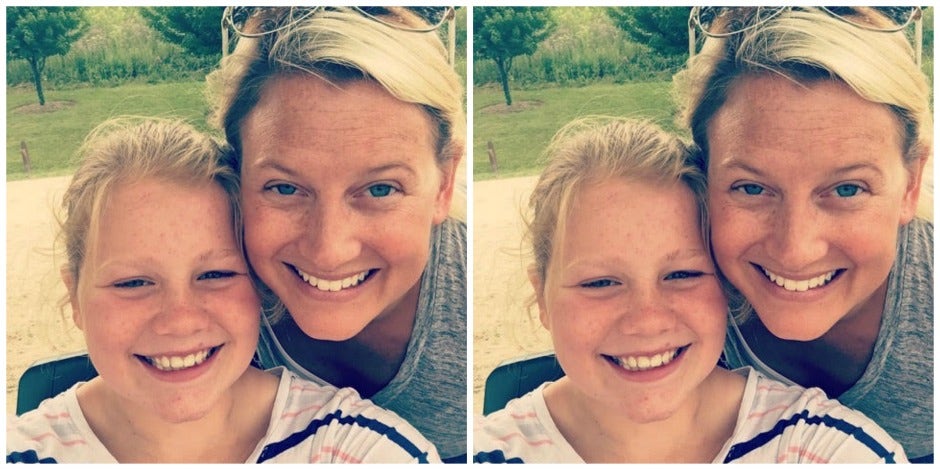Why I’ll Never Stop Wanting To Fit In On Social Media, No Matter How Old I Get
And how my preteen daughter made it OK.
 Lisa Pisha
Lisa Pisha Sunday night, sitting at the restaurant Noodles with my daughter as we wait for our food, she and I hop on our phones. We’ve got a little time to kill while we waited, so why not check out our social media feeds to see what’s happening with the small world we’re plugged in to?
We’re laughing, pointing out funny memes to one another, talking about Ariana Grande’s post and just hanging out, excitedly awaiting our food.
And then, one swipe up with a finger pops a picture of an event that many of the women I know were at over the weekend.
Leaning over my shoulder, my daughter turns her head from my screen and looks at my face, asking, "Mom, were you there?"
No, I wasn't. It’s not that I missed the photo op, it’s that I wasn't there at all. "I’m sorry. Are you mad?"
My 12-year-old daughter is in middle school, the land of the uninvited and wanting to belong. I had no idea that at almost 40, she and I would be occupying the same headspace and experiencing the same negative effects of social media.
How is that even possible? I have a much wiser brain now than when I was 12. And, I’ve done a ton of emotional work. What is going on here? Have I not grown as much as I thought? Why am I finding myself affected by this?
I’ve had this conversation hundreds of times. From clients to friends to family members — the topic rings true across ages. We all feel left out, hurt, unwanted, like you don’t belong, and had hoped that by this time, you’d be over it or have finally found your people.
And the thing is, while the conversation isn't the same between the 12 and 40-year-olds, the emotions are. The truth is, everyone wants to fit in and it sucks when you don’t.
What I’ve come to realize is that it isn't that you’ll never want to not fit in — so don’t wish for this. A sense of belonging is what connects us to the people we love and to the world. It’s freeing and vulnerable and where the magic happens. Where the magic freaking happens!
Belonging is one of the emotions we long for in our entirety. But the ways in which we belong, the ways in which we want to belong and what it takes to get us there as we grow older, change.
As I sat with my daughter and thought about the answer to her question of whether I was mad that I was spending time with her and not the other women, I smiled to myself a little bit and thought about gratitude — always my go-to.
At that moment, I was so grateful to know that I am capable of feeling deeper than anger. At one point in my life, I did not know that. At one point in my life, anger was my go-to.
I was also grateful that I knew my shame demons were close-by and I could spot them. I haven’t always known this either. In fact, not that long ago I would’ve crumbled over this, reading everything negatively, being unforgiving to myself, and then taking those feelings out on the people I love.
I am grateful, so grateful that I was sitting and having this conversation with my daughter, whose love I can feel every single day and whose eyes and heart were looking to me to provide her with the sense that all was well, that I was okay and so was she.
Being in front of her, processing an emotion at the same time I was feeling it, well, I was actually grateful for that, too.
Our food came, and while I had momentarily lost my appetite, the smell of the food and the warmth of conversation with family checked me back into the present quickly realizing that I’m way more than just okay. I’m grateful.
Lisa Pisha is a licensed marriage and family therapist, writer, group leader and parent instructor working with individuals, families, and couples strengthening relationships through some of life's challenges and transitions.

